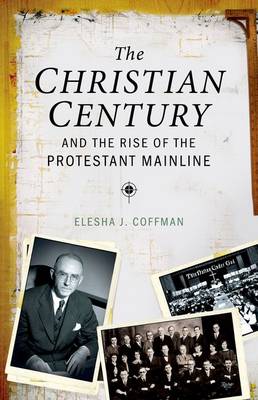Since the 1972 publication of Dean M. Kelley's Why Conservative Churches Are Growing-which, as one reviewer pointed out, was ''really a book about why the liberal churches have stopped growing''-discussion of the Protestant mainline has focused on the tradition's decline. The Christian Century and the Rise of Mainline Protestantism tells a different story, using the lens of the influential periodical The Christian Century to examine the
rise of the mainline to a position of cultural prominence in the first half of the twentieth century. Elesha J. Coffman argues that liberal Protestants used cultural capital and persuasive rhetoric to make a strong case for their own status as shepherds of the American soul, but their influence on American culture was
ultimately more a social construct than a demographic reality. The tradition's leaders were so identified because they espoused forward-looking ideas and affiliated with ''leading'' institutions, not because they actually had many followers. Consequently, the tradition's decline resulted less from a theological sea change than from a shift in the roster of religious spokespersons after World War II, coupled with growing doubt about the legitimacy of any kind of cultural establishment. In short,
the mainline was never mainstream, and its alliance with genteel philosophy rather than popular culture led to both its early successes and its eventual crises.
- ISBN10 0199938598
- ISBN13 9780199938599
- Publish Date 9 May 2013 (first published 1 January 2013)
- Publish Status Active
- Publish Country US
- Imprint Oxford University Press Inc
- Format Hardcover
- Pages 288
- Language English
